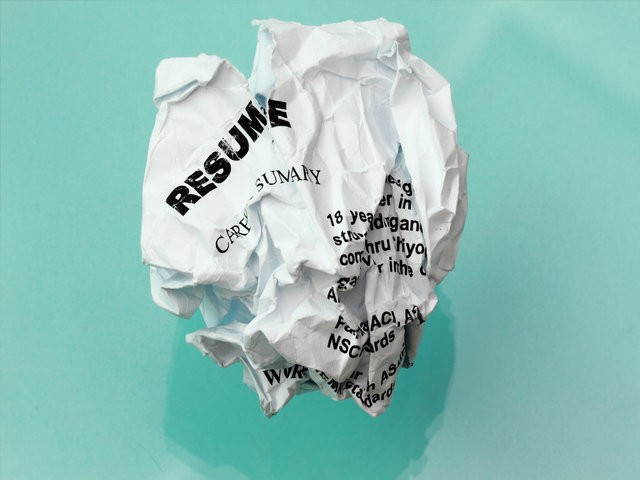Whether you’re applying for an internship or preparing for your future career, it is important to have a polished résumé that speaks to your character and skill set. As a Career Counselor at Johnson & Wales University and an online instructor, I frequently review student résumés.
Here are seven of the most common résumé mistakes I see:
1. Incorrectly listing information and dates.
Consistency is key! When writing a résumé, keep in mind that someone who isn’t familiar with you will be reading it. Make sure that all of your information matches up, that things are spelled correctly, and that it is formatted properly.
Pro Tip: When writing a date, you can write in any format (November 2017, Nov. 2017, 11/2017 or 11/17). Just make sure that all of the dates in your résumé are written the same way.
2. Writing in the first person.
On a résumé, you do not want to say things like “I am” or “my experience.” To a prospective employer, the first-person language is informal and it takes up a lot of room—so omit it when you’re writing. The hardest place to do this successfully is the objective statement.
Pro Tip: Begin your statement with something along the lines of “To obtain XYZ position at XYZ company.” This can help you to omit the “I” statement you might tend to use.
3. Writing in the wrong tense.
A messy résumé will stand out to an employer—and not for a good reason! Make sure all of your information is consistently written in the correct tense.
Pro Tip: Bullet statements for former jobs should be written in past tense. For current jobs, they should be written in present tense.
Related Content: Anatomy of a Cover Letter: Three Things to Know About Targeted Letters
4. Using vague terms.
Try to be assertive and straight-forward with your statements. Saying ‘I was responsible for…’ does not tell the reviewer you actually did a task but simply implies you have the knowledge to attempt it.
Pro Tip: Generally, the word right after “I was responsible for” is an action verb and this is what you want to start all of your bullet statements with. For example, instead of “I was responsible for drafting letters for,” say “drafted letters for.”
5. Including too much (or not enough) information.
On a résumé, there is limited space. You don’t need to include information about your high school experience unless you went through a technical program that is directly relevant to your current major. If you are now in college, it is assumed that you completed high school. As far as academic accomplishments, I’d say to include your college GPA only if it is a 3.0 or above.
Pro Tip: If you’re going to include your GPA, make sure to include the scale because different schools use different scales. For example, write “3.0/4.0” to show your prospective employers exactly where you fall on the scale.
6. Having a multi-page résumé.
Typically, you want to have a one-page résumé (unless you have years of experience). Your résumé should be a snapshot of your work experience. The only purpose of a résumé is to get you an interview; in the interview, you can expand upon your résumé and go into more detail.
Pro Tip: Try reducing the margins to narrow which is .5” on all sides in order to keep all details on one page.
7. Writing your objective about the company instead of yourself.
When penning your résumé, you want to keep your objective—and your résumé in general—focused on the skills that you are going to bring to the company. The purpose of this statement is not to showcase what you want to gain from working for a company. Remember that you are selling yourself as a candidate for employment!
Pro Tip: In your objective statement, focus on the specific skills you have that will help the company you are applying with advance their business.
For more information on how JWU Online can you help you pursue your career goals, contact us at 855-JWU-1881 or [email protected]. You can also fill out the “Request Info” form on this page.
